Serhii Svyrydenko, a farmer and ATO veteran from Donetsk Oblast, founded a goat farm in 2016 in the village of Ivanopillia, Kostiantynivka community. He produced craft cheese and meat delicacies under the trademark Kozatske Podviria. Svyrydenko received several grants, invested his own money, developed new products, and participated in fairs and festivals organized by USAID Economic Resilience Activity (ERA). But the full-scale war forced the farmer to seek shelter in a new place.
In April, ERA, together with the Reforms Office team at the Ministry of Economy, began holding dialogue platforms on business relocation to safer regions. Svyrydenko participated in these events, learning about the experience and difficulties of other entrepreneurs, but did not dare leave his home until July.
Sales were falling, some customers left, and when shelling caused power outages, Svyrydenko decided it was finally time to go. Without an electric pump, he would not even be able to provide his goats with water from the well.
Svyrydenko scoured Ukraine for a new location. He wrote posts on social networks about his search for premises, and asked for advice on potential places for his animals and production.
“When I traveled around Ukraine, I saw a lot of half-ruined farms that were not suitable to house animals. They required a lot of investment. Then a farmer from Volyn saw a post about me on social media and wrote, saying he was ready to take me in. I had no other options, so I agreed to come to him with my goats,” says Svyrydenko.
 The second challenge was the relocation process itself. The farmer had to transport not only equipment, but 150 Nubian goats. Svyrydenko rented a large vehicle for the move from Donetsk Oblast to Volyn. In addition to his animals, the farmer took a tractor and trailer, cheese dairy equipment, and a refrigerator for meat products.
The second challenge was the relocation process itself. The farmer had to transport not only equipment, but 150 Nubian goats. Svyrydenko rented a large vehicle for the move from Donetsk Oblast to Volyn. In addition to his animals, the farmer took a tractor and trailer, cheese dairy equipment, and a refrigerator for meat products.
Now the goats are grazing near the new farm, and adapting to the taste of grass in the village of Didychi, Olytska Community. Grass differs in different regions of Ukraine, affecting animals’ digestion, as farmers know. Svyrydenko needs help to buy winter feed — at home in Donetsk Oblast, his goats ate 30 tons of hay over the winter. After the first snow, they will need to be fed indoors with hay and beets.
Meanwhile, he and his partner Ivan Budem are repairing the farm where the goats will spend the winter. In the neighboring village of Horynivka, Svyrydenko has rented a sausage workshop, where he has already started making his first batch of dried meat and brynza cheese. He has hired a displaced woman from Kostiantynivka, who now lives in the same village, to help in the shop.
“I haven’t lost heart and I am ready to work, although a lot of things were left at home and I need to start again here, in a new place. Now there is grant support – I recently won a grant from the Danish Refugee Council and will receive new modern equipment for the cheese dairy, including a refrigerator and cheese-making machine. With a grant from the Ministry of Veterans Affairs, I will be able to buy a car to transport raw materials and deliver products,” says Svyrydenko.
In Volyn, the farmer is already getting acquainted with the locals, who recently invited him to cook his specialty pilaf over an open fire, as he used to do at fairs and festivals of craft producers.
To become successful again, the entrepreneur is ready to work hard, and to return to his native Donetsk Oblast with new experience after the victory of Ukraine.



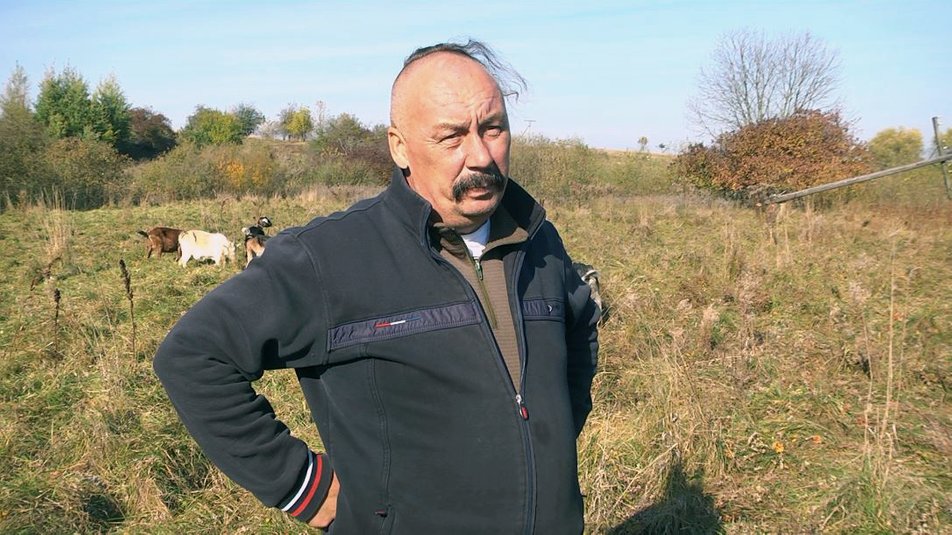
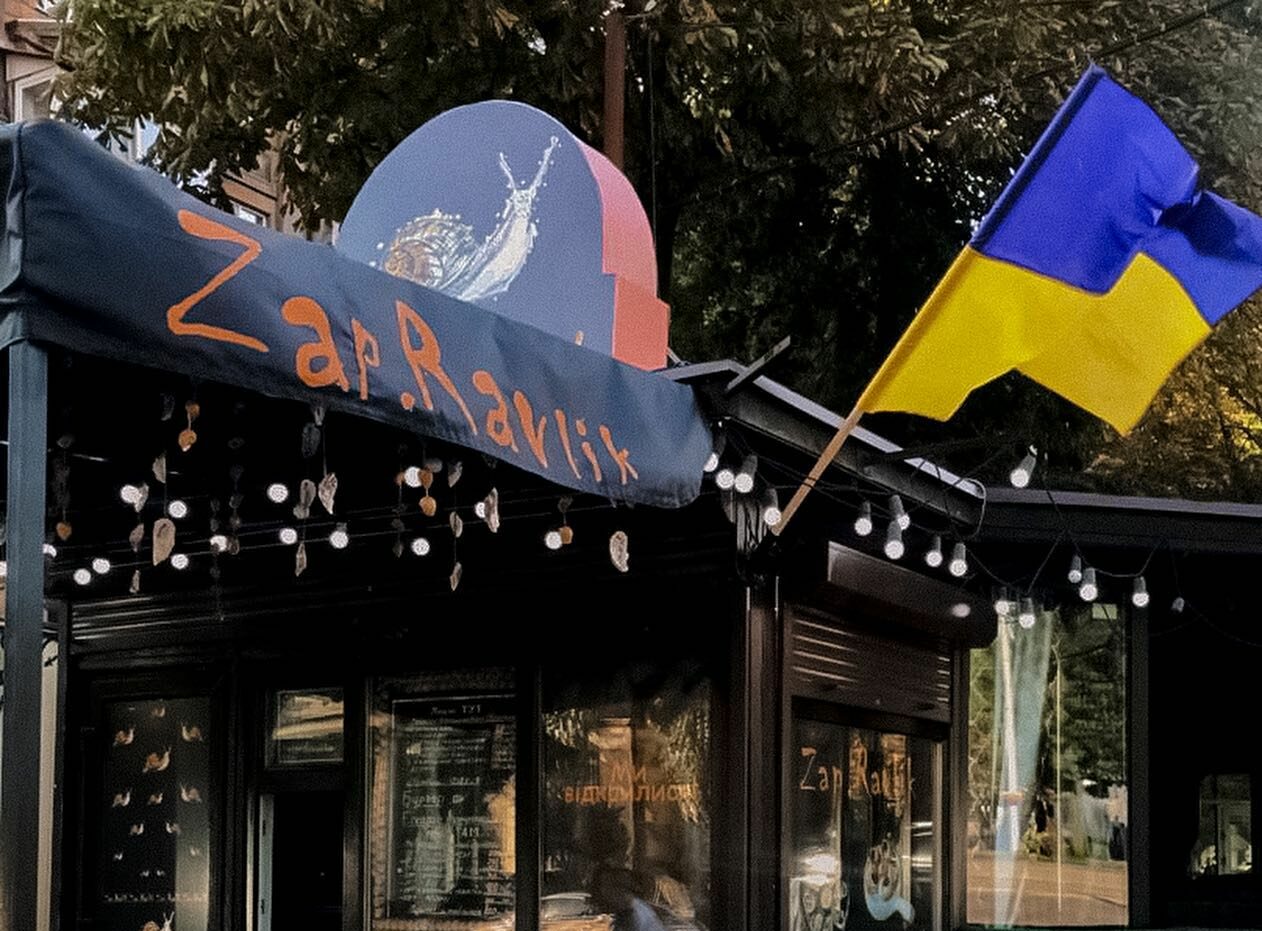
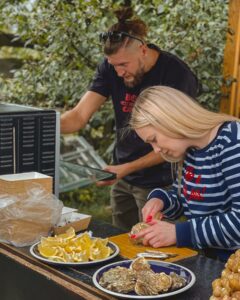 “According to Ukrainian legislation, we must comply with certain requirements at work and introduce this safety system. First of all, it concerns our reputation and our partners’ trust in us and our product,” says Victoria Sorokina, co-founder of Zap.Ravlik. “We are talking not just about medical records for the staff and a change of clothing in the workshop, but more about requirements for equipment, distribution of production areas, movement of personnel in the workshop, and the arrangement of equipment. We have already divided the kitchens: in one we work with fresh fillets, which we bring straight from the snail farm; in the other we make snail pâtés and other delicacies. We also need different sinks, refrigerators, and separate containers for storing and processing products, so that the smells do not mix. This is all very important for making a quality product.”
“According to Ukrainian legislation, we must comply with certain requirements at work and introduce this safety system. First of all, it concerns our reputation and our partners’ trust in us and our product,” says Victoria Sorokina, co-founder of Zap.Ravlik. “We are talking not just about medical records for the staff and a change of clothing in the workshop, but more about requirements for equipment, distribution of production areas, movement of personnel in the workshop, and the arrangement of equipment. We have already divided the kitchens: in one we work with fresh fillets, which we bring straight from the snail farm; in the other we make snail pâtés and other delicacies. We also need different sinks, refrigerators, and separate containers for storing and processing products, so that the smells do not mix. This is all very important for making a quality product.”
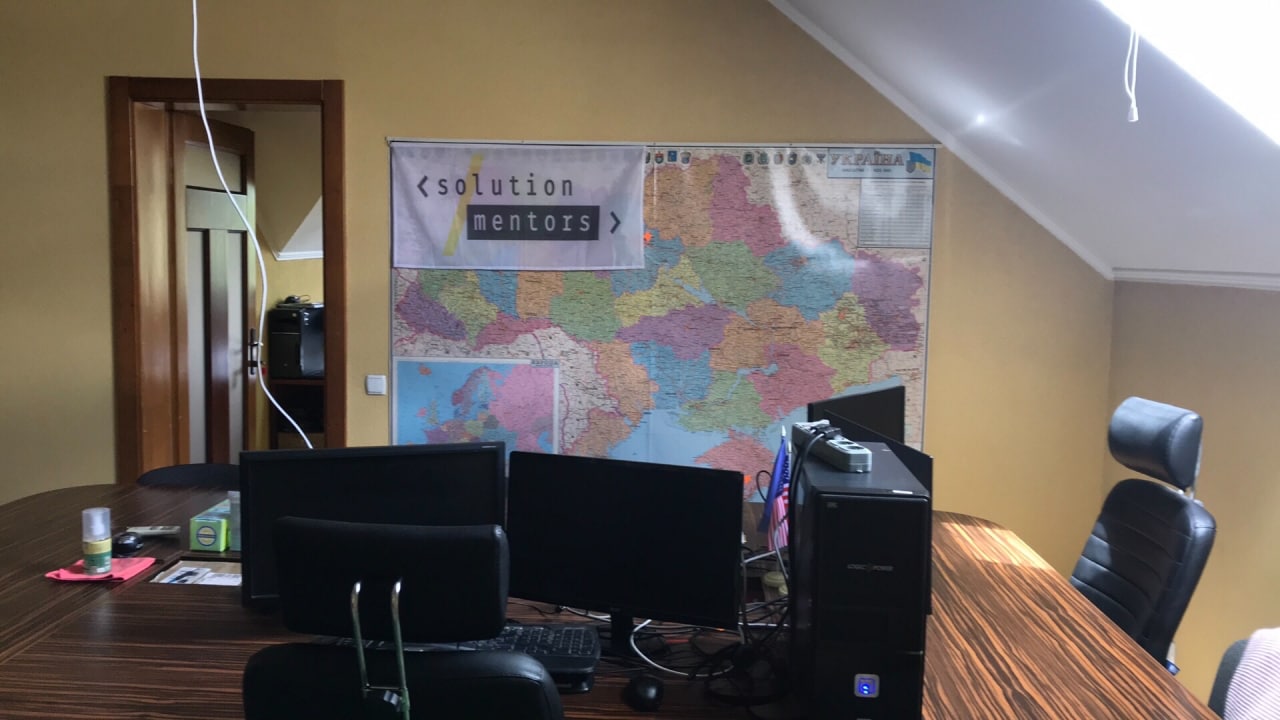
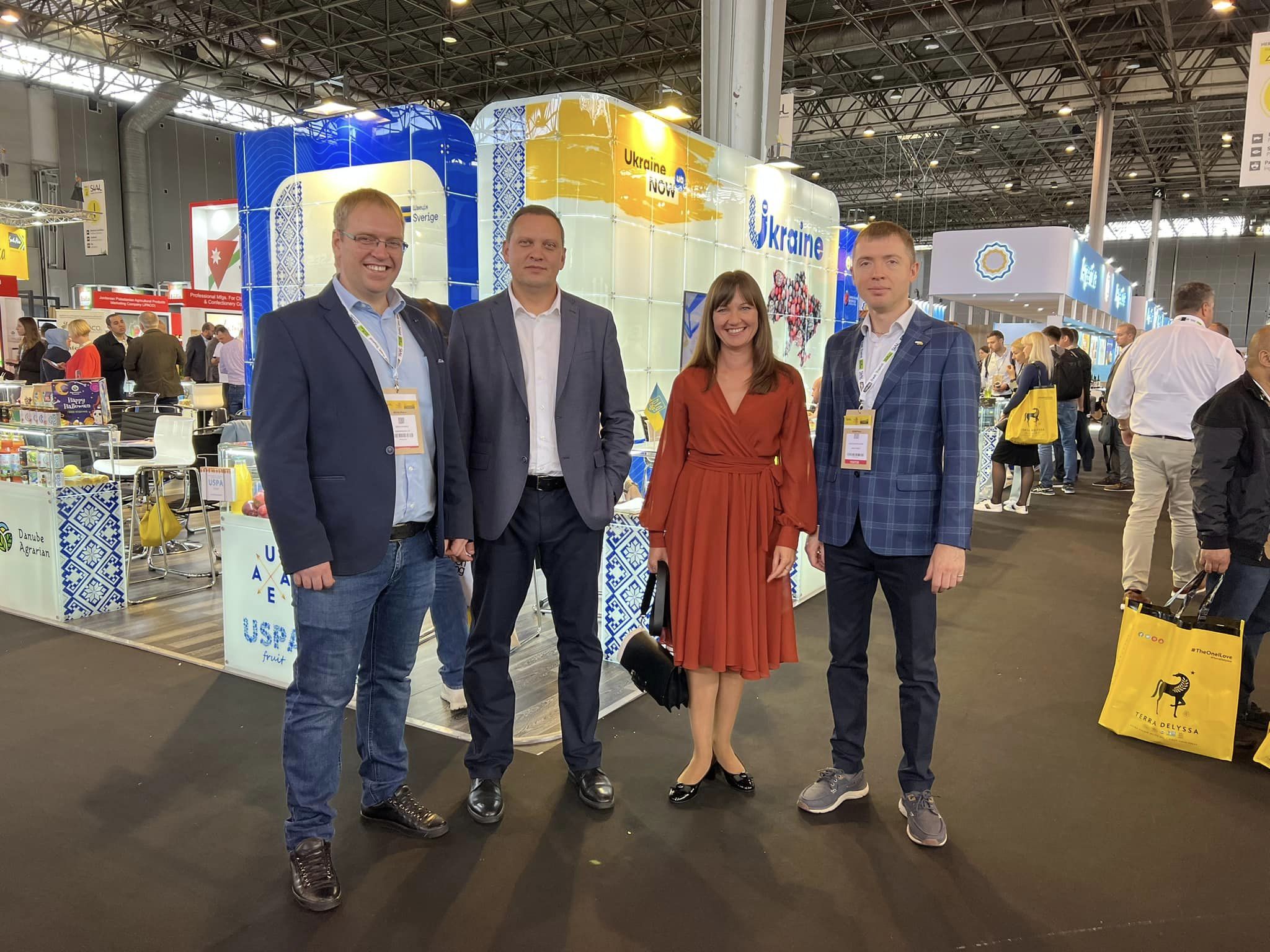
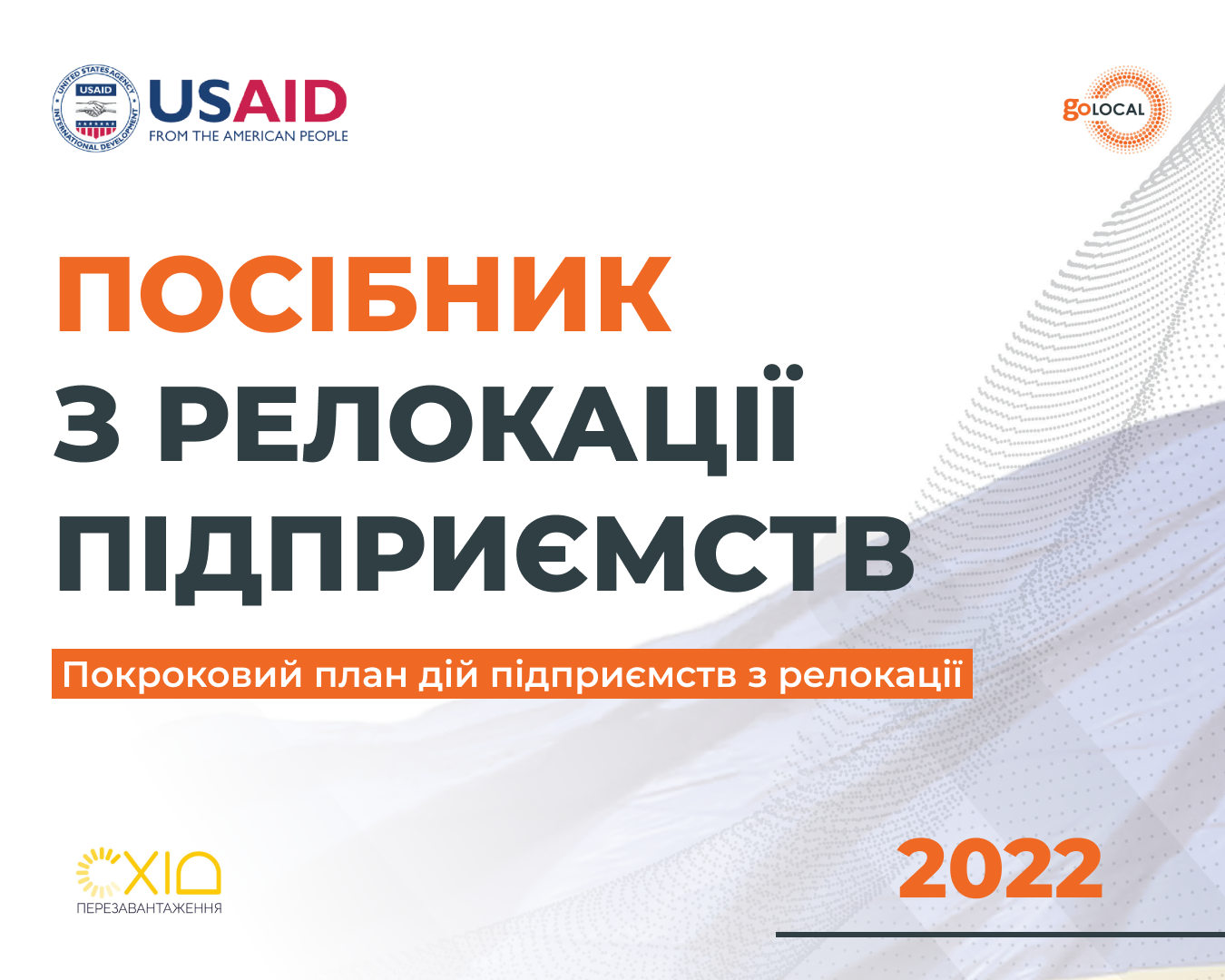
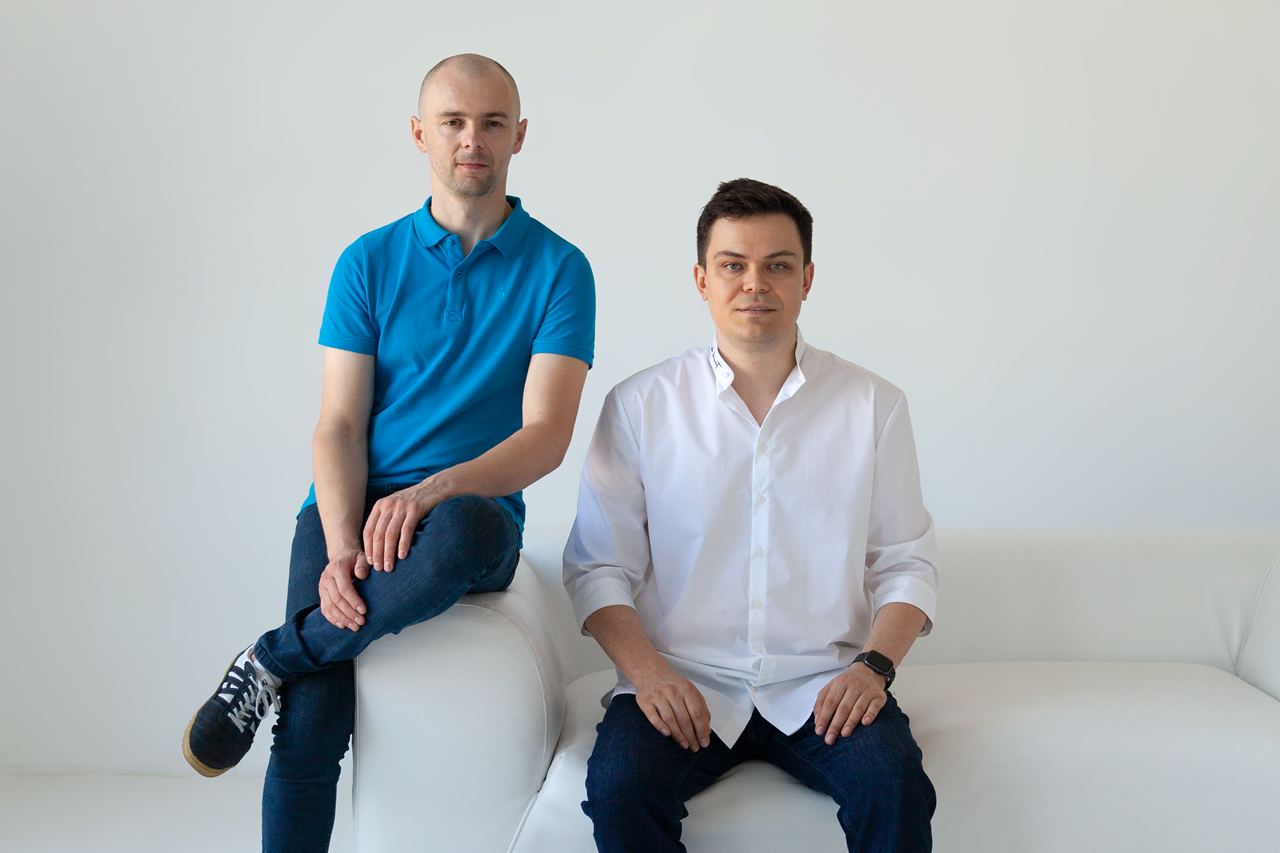
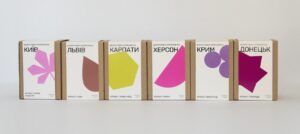 Rekava has created a series of six scented candles with different city scents. Kyiv is the smell of lilacs and chestnuts; Donetsk is scented with rose; Lviv smells of coffee; Crimea of grapes; Kherson of watermelon, and the Carpathians of herbs and honey.
Rekava has created a series of six scented candles with different city scents. Kyiv is the smell of lilacs and chestnuts; Donetsk is scented with rose; Lviv smells of coffee; Crimea of grapes; Kherson of watermelon, and the Carpathians of herbs and honey.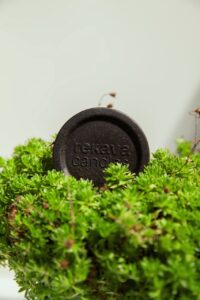 The Rekava team realized that they need industrial equipment to manufacture products in large volumes, in particular, coffee cups and flowerpots made of coffee grounds. They applied for a consulting support program for relocated small and medium-sized businesses run by NGO GoLocal, which is supported by USAID Economic Resilience Activity (ERA). The program consultants advised them how to reduce costs, prepare a high-quality business plan and improve business processes.
The Rekava team realized that they need industrial equipment to manufacture products in large volumes, in particular, coffee cups and flowerpots made of coffee grounds. They applied for a consulting support program for relocated small and medium-sized businesses run by NGO GoLocal, which is supported by USAID Economic Resilience Activity (ERA). The program consultants advised them how to reduce costs, prepare a high-quality business plan and improve business processes.